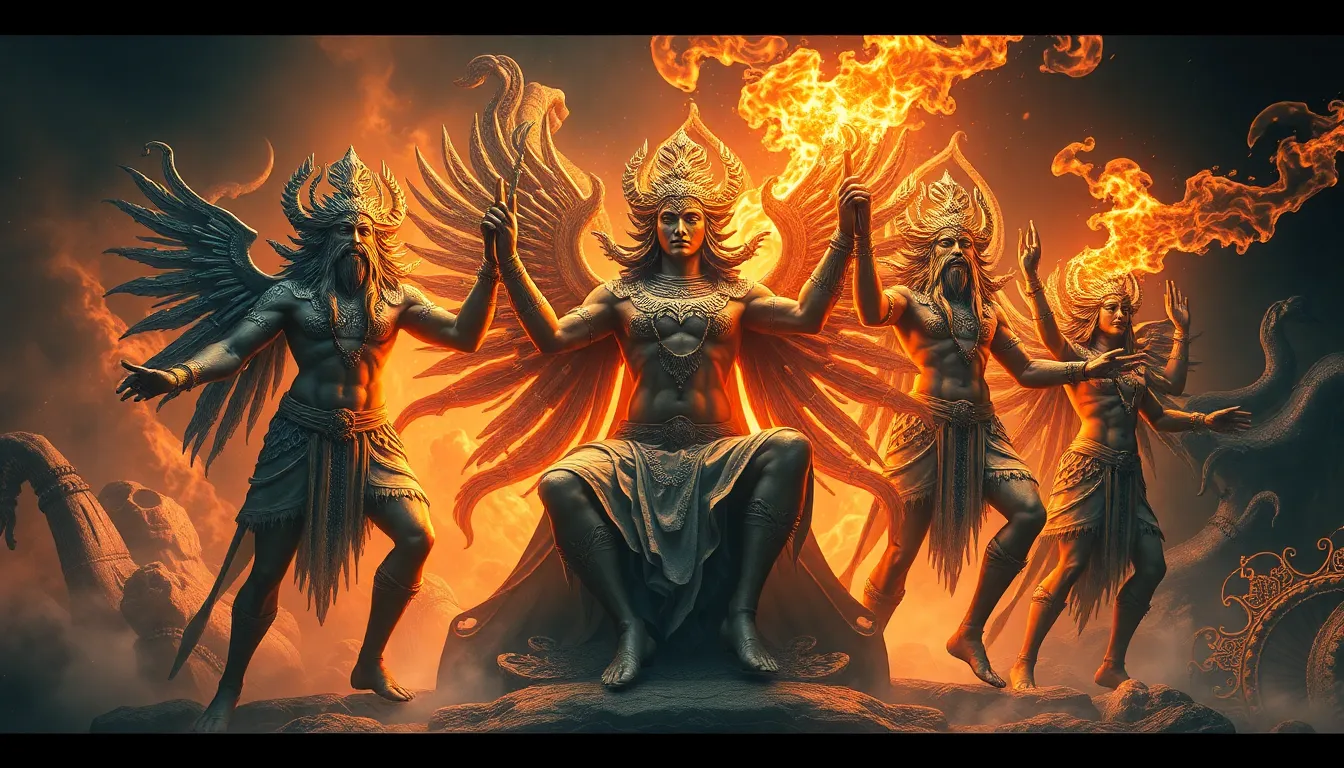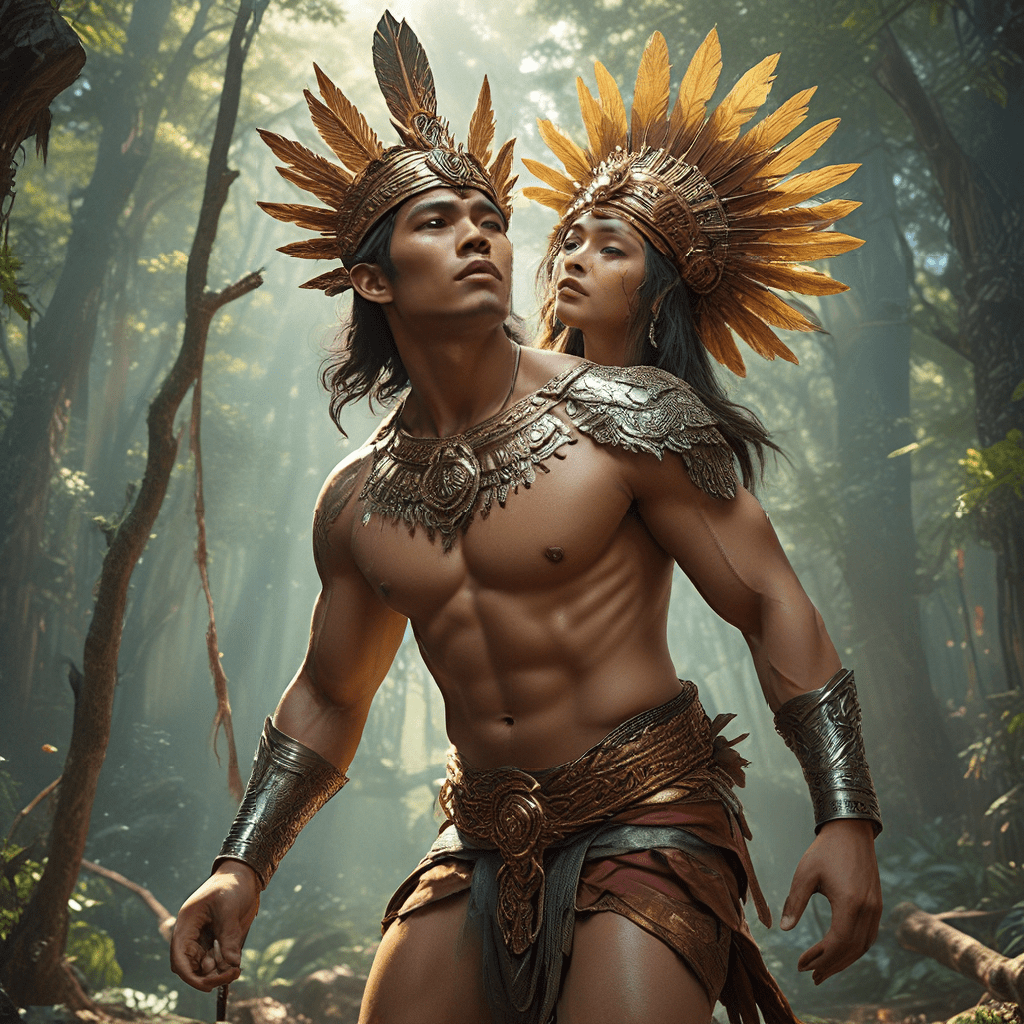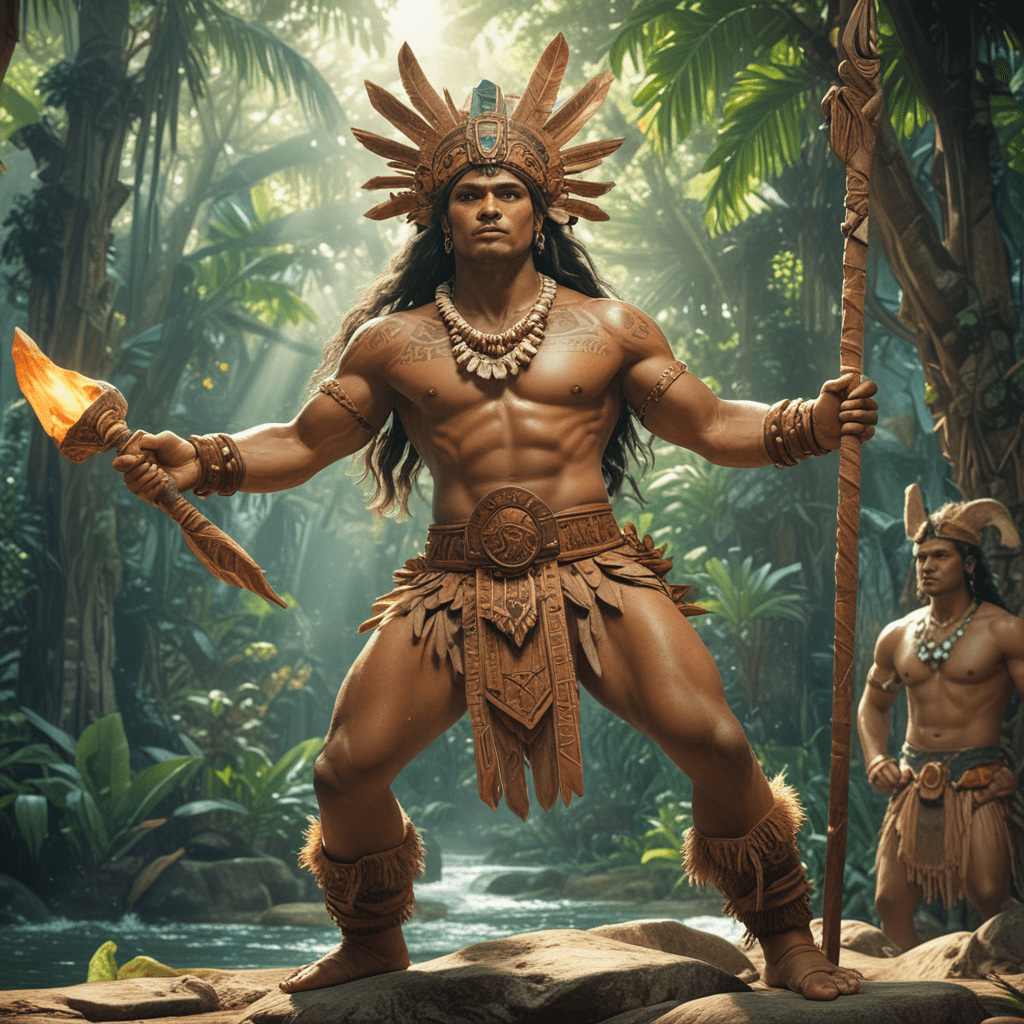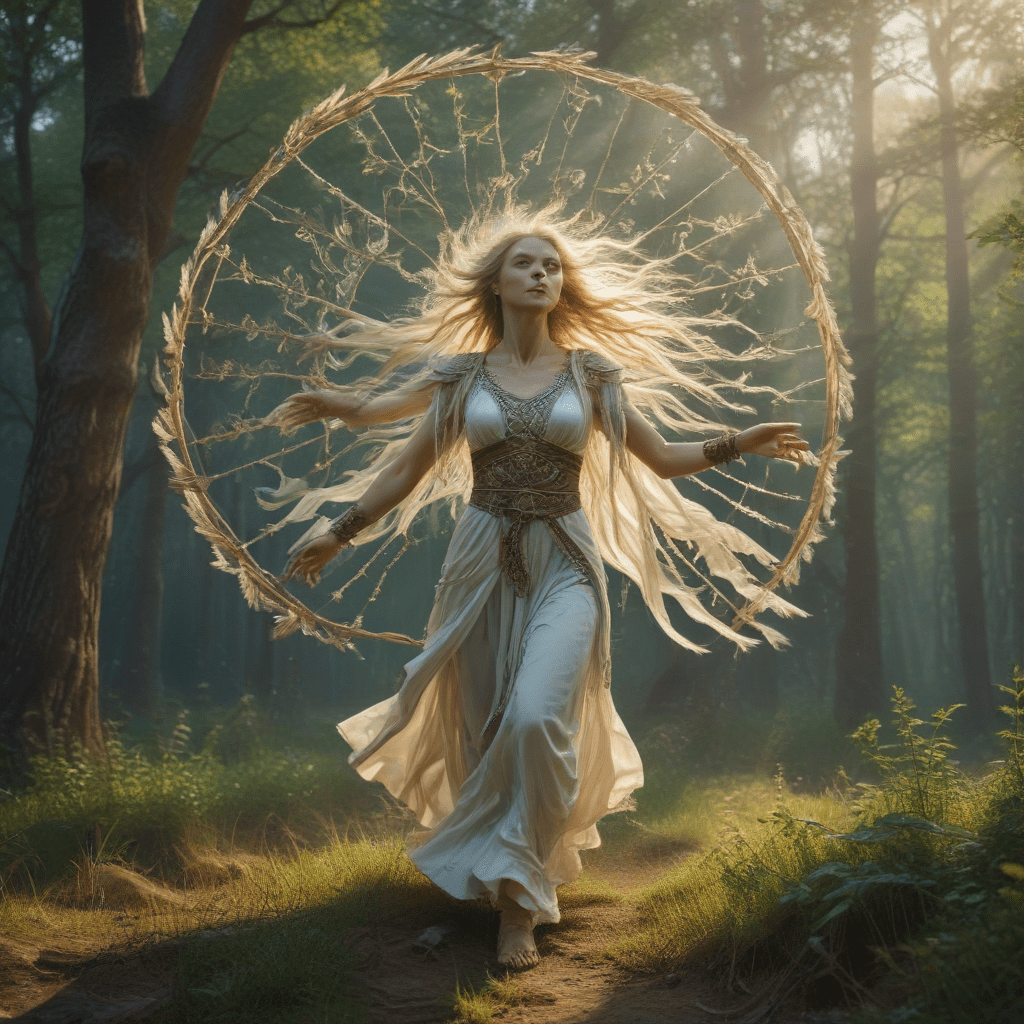The Role of Ancient Deities in Shaping Human Existence
Introduction: The Enduring Influence of Ancient Deities
Ancient deities have played a pivotal role in the development of human culture, thought, and civilization. These supernatural beings, revered across various cultures, embody the beliefs, values, and aspirations of the societies that worshipped them. From the pantheons of Mesopotamia to the gods of Greece and Egypt, ancient deities served as essential touchstones for understanding the world and humanity’s place within it.
This article explores how these deities shaped human existence, influencing everything from moral frameworks to governance, and how their legacies continue to resonate in modern society.
The Nature of Deities: Anthropomorphism and Symbolism
One of the defining characteristics of ancient deities is anthropomorphism—the attribution of human traits, emotions, and intentions to gods and goddesses. This practice allowed ancient peoples to relate to the divine in a personal way, making complex cosmic and natural phenomena more understandable.
Deities often served as symbols, representing various aspects of life and the universe. For example:
- Creation and Destruction: Gods like Vishnu and Shiva in Hinduism symbolize the cycles of life.
- Fertility and Agriculture: Demeter in Greek mythology represents the harvest and the sustenance of life.
- War and Conflict: Ares, the Greek god of war, embodies the chaos and valor associated with battle.
These symbolic meanings helped ancient peoples navigate their existence, providing frameworks for understanding both the physical world and spiritual experiences.
Cultural Context: Ancient Civilizations and Their Pantheons
Different ancient civilizations developed unique pantheons that reflected their social, political, and environmental circumstances. Here are some major civilizations and their deities:
Mesopotamia
The Sumerians, Akkadians, Babylonians, and Assyrians worshipped a multitude of gods, including Anu (the sky god) and Enlil (the god of wind and storms). Their pantheon was closely tied to agriculture and city-states, where deities were often seen as protectors of specific cities.
Egypt
Egyptian deities like Ra (sun god) and Isis (goddess of fertility and motherhood) were integral to the civilization’s identity. Their belief in the afterlife and the importance of the Nile River shaped the way they viewed their gods, often connecting them to natural phenomena.
Greece
The Greek pantheon, featuring gods such as Zeus, Hera, and Athena, was deeply intertwined with human affairs, embodying virtues and vices that reflected human nature. Myths about these deities illustrated moral lessons and cultural values.
Indus Valley
Although less is known about their deities, archaeological evidence suggests a rich spiritual life with figures resembling later Hindu gods, indicating a deep connection to fertility, nature, and cosmic order.
Mythology and Storytelling: The Creation of Human Identity
Myths serve as foundational narratives that define cultural identity and moral codes. Stories of deities helped to establish communal values, illustrating what was considered right and wrong.
For example:
- The Epic of Gilgamesh: This Mesopotamian story not only recounts the adventures of a hero but also explores themes of friendship, mortality, and the quest for immortality.
- The Iliad and The Odyssey: Homer’s epics highlight the interplay between human agency and divine intervention, reflecting Greek values of honor and heroism.
By embedding moral lessons within these narratives, ancient societies reinforced norms and shaped individual identities within the community.
Rituals and Worship: Connecting Humanity with the Divine
Rituals were central to ancient societies, serving as a means of connecting with the divine. These practices included offerings, prayers, and festivals that honored the gods.
For instance:
- Mesopotamian Ziggurats: Towers built to elevate temples closer to the heavens, where priests conducted rituals to appease the gods.
- Greek Festivals: Events like the Olympics were dedicated to Zeus, combining athletic competition with religious devotion.
Such rituals fostered community cohesion and provided psychological benefits, offering participants a sense of belonging and purpose.
Deities as Guardians: Protection and Guidance in Human Life
In many cultures, deities were seen as protectors who offered guidance and support during difficult times. People sought divine intervention in moments of crisis, whether in war, famine, or personal hardship.
For example:
- Athena: The Greek goddess of wisdom and war was often called upon for protection in battle.
- Ishtar: In Mesopotamian mythology, she was invoked for protection in love and war.
This reliance on deities for guidance reflects the human desire for reassurance and hope in uncertain circumstances.
The Duality of Deities: Good and Evil in Human Experience
Many ancient deities embodied both benevolent and malevolent aspects, reflecting the complexities of human experience. This duality illustrates the moral dilemmas faced by individuals and societies.
Examples include:
- Hades: In Greek mythology, he ruled the underworld, representing both fear and the inevitability of death.
- Set: In Egyptian mythology, he was the god of chaos and disorder, yet also a necessary force for balance.
This duality allows for a nuanced understanding of morality, emphasizing that good and evil often coexist in human experience.
Impact on Governance and Law: Divine Right and Authority
The intersection of divine authority and political power is a recurring theme in ancient societies. Rulers often claimed divine sanction to legitimize their authority and govern their people.
For instance:
- Pharaohs: In ancient Egypt, they were considered gods on earth, responsible for maintaining maat (cosmic order).
- Mesopotamian Kings: Often viewed as representatives of the gods, they were tasked with enforcing laws believed to be divinely inspired.
This connection between deities and governance influenced legal systems and societal structures, intertwining religion with the state.
Legacy of Ancient Deities in Modern Society
Although the worship of ancient deities has waned, their influence persists in contemporary culture. Modern literature, art, and spiritual practices continue to draw inspiration from these figures.
For example:
- Literature: Many authors reference ancient myths and deities to explore themes of human nature.
- Art: Visual representations of gods and their stories remain prevalent in museums and pop culture.
- Spirituality: Some modern spiritual practices incorporate elements from ancient religions, emphasizing the continued relevance of these deities.
This ongoing legacy underscores the importance of ancient deities in shaping human thought and cultural evolution.
Conclusion: The Lasting Legacy of Ancient Deities on Human Existence
Ancient deities have profoundly influenced human existence, shaping cultural identities, moral frameworks, and social structures. Their stories, rituals, and symbolism continue to resonate in modern society, offering insights into human nature and our collective past.
As we study these ancient figures, we gain a deeper understanding of the historical and cultural evolution that has shaped our world. The enduring legacy of ancient deities serves as a reminder of our shared humanity and the timeless quest for meaning and connection.



